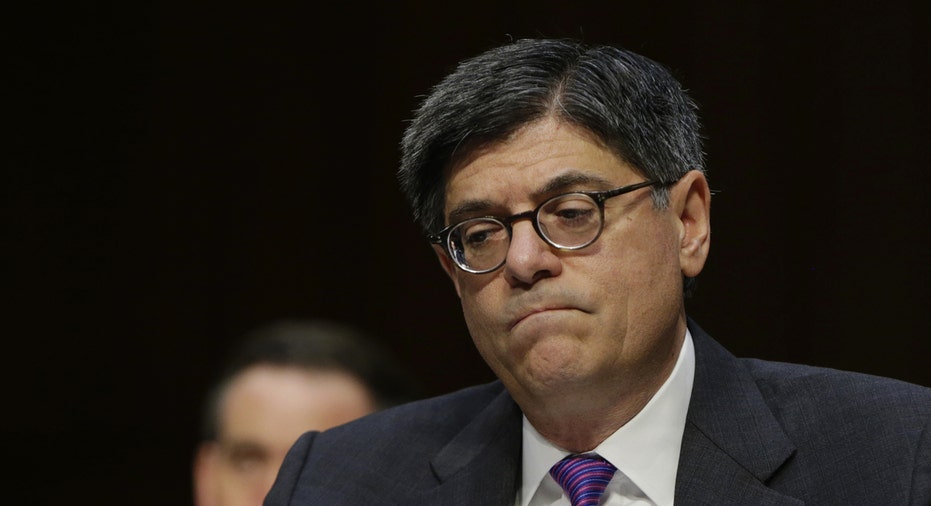Treasury's Lew Says U.S. Will Hit Debt Ceiling No Later Than Nov. 3

The U.S. Treasury on Thursday moved forward by two days to Nov. 3 the deadline for when Congress must extend the debt limit.
Treasury Secretary Jack Lew wrote in a letter to Speaker of the House John Boehner (R-Ohio) “we now estimate that extraordinary measures will be exhausted no later than Tuesday, Nov.3.”
Lew is scheduled to appear on FOX Business Network later today in an exclusive interview with Liz Claman.
Lew said in the letter to Congress that additional information received by Treasury in the past two weeks regarding receipts, investments and expenditures revealed that Treasury’s projected net resources have declined by between $4 billion and $6 billion.
That shortfall moved the deadline for lifting the debt limit up by two days, according to Lew.
“At that point, we expect Treasury would be left with less than $30 billion to meet all of the nation's commitments-an amount far short of net expenditures on certain days, which can be as high as $60 billion,” Lew wrote.
“The trend in our projected net resources has continued to be negative. I respectfully urge Congress to take action as soon as possible, raise the debt limit without delay, and remove an unnecessary threat to our economy," he added.
The debt limit, a once-obscure annual event in which Congress approves raising the U.S. limit on how much it can borrow in order to cover growing expenses and inflationary price increases, has become a huge political football in recent years.
Republicans concerned by the overall U.S. debt level have fought to tie approval of raising the debt limit to cutting spending elsewhere. Democrats have resisted the effort, saying a higher annual debt limit is necessary for the U.S. to consistently pay its debts and maintain its credit around the world.
Lew addressed these political concerns in his letter.
“The creditworthiness of the United States is an essential component of our strength as a nation…,” he wrote. “We have learned from the past that failing to act until the last minute can cause serious harm to business and consumer confidence, raise short-term borrowing costs for taxpayers, and negatively impact the credit rating of the United States.”



















